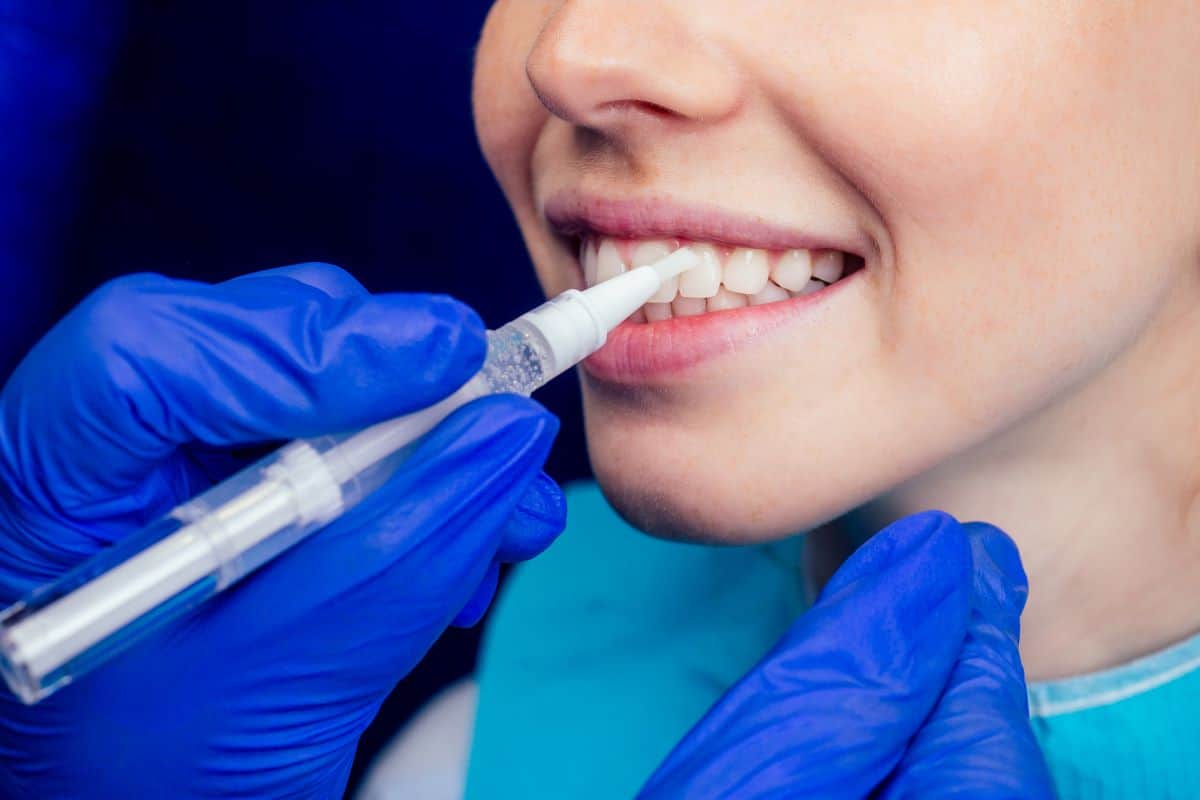
29 Aug How Long Do Crowns Last On Your Teeth?
If your tooth is damaged, you may need a dental crown to help restore its normal shape, function, and size. Crowns usually last for a while, but with the proper precautions, you can extend their life. The length of time your crown lasts depends on what type your crown is and how you maintain your teeth.
A crown is necessary to protect a tooth that has cracked or broken, needs a dental bridge, or following a root canal. Your dentist may recommend a certain type of crown based on the location of the tooth and how visible it is when you speak or smile. Crowns are usually made from different metals, porcelain-based materials, resins, and ceramics– some of which last longer than others do. In this article, we’ll explore different types of crowns and how long they usually last before needing to be replaced – as well as warning signs that it might be time for a new one.

What Is The Average Time A Crown Will Last?
The average time a crown will last depends on what type of crown it is and how well you take care of your teeth. Metal crowns made of gold or another type of metal are the longest lasting, but they are also the most visible. Porcelain-based crowns look more like natural teeth, but they may not last as long as metal crowns. Resin and ceramic crowns are somewhere in between in terms of durability and appearance.
Here are the four most common crowns:
Porcelain fused to metal
- PFM crowns are made of two materials – porcelain on the outside for its natural look and metal (usually cobalt-chromium alloy) on the inside for added strength.PFM crowns are a popular choice because they provide both durability and aesthetics. They can last for more than a decade, but the metal underneath the porcelain can sometimes show through as a dark line – especially if your gums recede over time.
Lithium disilicate
- Lithium disilicate crowns are made of a strong ceramic material that can last for many years. They are also known as e.max crowns and are often used on front teeth because they closely resemble natural teeth in both color and translucency.
Gold
- Gold crowns are made of an alloy of gold, copper, and other metals. They are commonly used on back teeth because they are strong and durable. Gold crowns can last for more than 20 years with proper care.
Zirconia
Zirconia crowns are made of a strong ceramic material that looks like natural teeth. They are often used on back teeth and can last for more than a decade with proper care. When it comes to how long your crown will last, the type of crown is just one factor to consider. With proper care, any type of crown can last for many years.
What Lasts Longer Crowns Or Veneers?
The principal distinction between a dental veneer and a crown is the amount of tooth coverage each provides. A veneer only covers the front of your tooth while a crown encases the entire tooth. Veeners are also thinner than crowns.
- Veneers and crowns last a similar amount of time, however, veneers may not be as durable because they are thinner. In general, veneers are mostly utilized for cosmetic reasons.
- However, if there are cracks, decay, or wear present, a crown will more than likely be the better option recommended by your dentist.
While veneers and crowns can both last many years, it’s important to note that neither is permanent. Over time, both may need to be replaced due to wear and tear, or changes in your mouth.
When Is It Time To Replace Your Crown?
If you have a dental crown, be sure to visit your dentist for checkups and cleanings regularly. Your dentist will inspect the condition of your crown and decide if it should be replaced. You are the best person to detect any changes in your mouth. A crown’s lifespan is typically measured in years, but some indicators that it is approaching the end of its usefulness include:
- Pain involving the tooth with the crown.
- A feeling that the crown is unstable or appears to be moving.
- The tooth with the crown is no longer aesthetically pleasing.
- The gum tissue around the tooth with the crown appears red, swollen, or bleeding.
If you notice any of these changes, be sure to see your dentist as soon as possible for an evaluation.

What can affect the lifespan of a crown?
Your crown lifespan varies based on the kind of material it’s made of, as well as how often you brush your teeth and other healthy habits. Practice good dental hygiene habits to make your crown last longer:
- Brush your teeth 2 to 3 times a day
- Floss at least once a day
- Get a professional dental cleaning every 6 months
Practically speaking, taking care of your other teeth helps your crown last longer. All your teeth work together and rely on one another for support.
- When one tooth is damaged, it can put extra stress on the others.
- Crowns are an investment in your smile, so taking care of them is important! With proper care, your crown can last many years.
But if you notice any changes in your mouth, be sure to see your dentist as soon as possible for an evaluation.
Additional factors that can affect the lifespan of a crown include:
Type of crown
- The quality, construction, and materials of the crown will all affect how long it lasts.
Dental skill-set
- Several factors can contribute to the longevity of a dental crown, such as how well the tooth was prepared by the dentist and how accurately it was scanned or imprinted. Using a digital scanner is more precise than taking an impression with trays for multiple teeth.
The health of the affected tooth
- If the tooth is in otherwise excellent condition, with longer roots and far healthier gum and bone levels, it will almost certainly have a better outlook.
Use of teeth as tools
- Chewing on ice, tearing threads with your teeth, and using your teeth as bottle openers can all cause wear and tear on a crown, which can diminish its lifespan.
Grinding your teeth
- Crowns are more prone to wear and breakage if you clench and grind your teeth, particularly at night. A ceramic crown’s surface can be worn down by clenching and grinding it, especially if it’s a full coverage type. You might wish to invest in a mouthguard that you can use while sleeping to protect your crown.
How much does it cost to replace a crown?
The cost of getting a new crown depends on the type of crown, the location of the tooth, and whether you have dental insurance. The average cost of a dental crown ranges from $500 to $3,000.

It Is Important To Visit The Dentist Regularly
A crown’s longevity is also determined by how often it is examined. Dentists can examine both natural teeth and dental crowns to help maintain their lifespan. Cleaning the mouth regularly helps to avoid any new infections that might develop in the mouth and spread, endangering not only the crown but also the tooth beneath it. A well-observed brushing and flossing regimen, along with visits to the dentist, can keep a crown in place for years.
Summary
The average lifespan of a dental crown is between 5 and 15 years, though with proper care it can last much longer. The type of crown, the skill of the dentist, and the overall health of the tooth are all important factors in determining how long a crown will last. Practicing good oral hygiene habits is the best way to prolong the life of your crown. If you think it may be time to replace your crown, be sure to schedule an appointment with your dentist.


Sorry, the comment form is closed at this time.